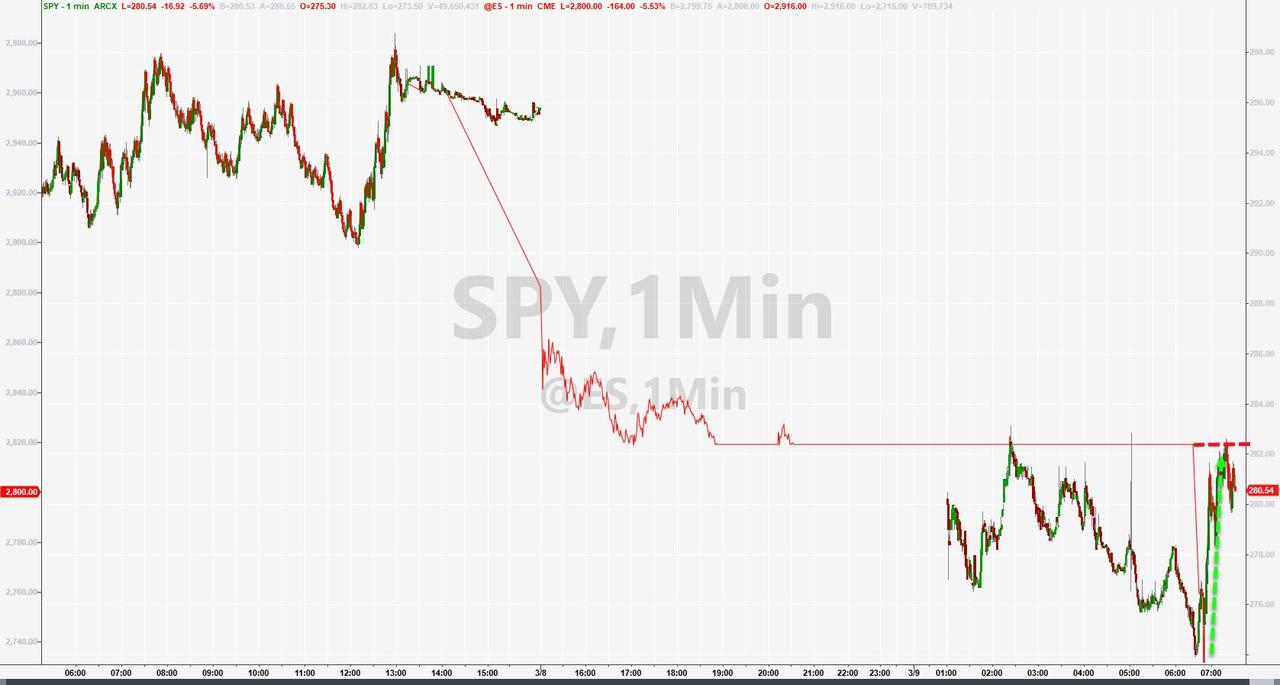Shortly after we spoke about a prediction from Goldman's David Mericle that the government and/or the Fed will need to immediately step in with monetary and fiscal stimuli to try and manage the recent chaos in the markets, VOA's Steve Herman reports that the White House will be holding a meeting to discuss economic stimulus later this afternoon.
Economic stimulus meeting to held here at the @WhiteHouse after @POTUS returns this afternoon, according to officials.
— Steve Herman (@W7VOA) March 9, 2020
Trump, meanwhile, is blaming an oil-driven spat between Saudi Arabia and Russia - not coronavirus fears - as "the reason for the market drop!"
Saudi Arabia and Russia are arguing over the price and flow of oil. That, and the Fake News, is the reason for the market drop!
— Donald J. Trump (@realDonaldTrump) March 9, 2020
Good for the consumer, gasoline prices coming down!
— Donald J. Trump (@realDonaldTrump) March 9, 2020
To review some of the options on the table, according to Goldman:
Beyond funding for virus testing and treatment, the most direct avenue is aid to corporates and small businesses, especially in sectors hit by the virus shock. A US precedent is the post-9/11 help for the airline industry, which involved $5bn in direct payments and up to $10bn in loan guarantees.
Another avenue—at least in the US where the central bank is very limited in what it can legally buy—is for the Treasury to backstop credit easing facilities for the Fed; however, it would probably take a material further deterioration in market conditions and functioning for such facilities to be reestablished.
On the Fed side, Goldman expects easing in March and April, with 100bp on the table. That said, it may have limited impact given where rates already are.
So far there's been virtually no reaction to news of the meeting.

Commenti
Posta un commento